On 12 April 2022, the RICH Public Health Cloud Forum, co-organized by the Tsinghua Southeast Asia Center and the Tsinghua Vanke School of Public Health, was held online at Tsinghua University with two parallel Deep Dive Discussions with the themes of “The COVID-19 Pandemic: the Opportunity to Strengthen Public Health System” and “New Era Bali Kerthi Roadmap: Healthcare and Digital Investments”.
Prof. Wang Xiqin, President of Tsinghua University, delivered opening remarks. He pointed out that the COVID-19 pandemic brings challenges to social and economic development, but opportunities for countries to take action for stronger and more resilient public health systems. Recent global health challenges have highlighted the need to further promote integrative and resilient platforms for international cooperation. Tsinghua University remains steadfast in our commitment to our common health and sustainable future. He hoped that the Forum would serve as a platform to explore the extensive cooperation and exchange in the field of public health between China and Indonesia. Prof. Wang further advocated making joint efforts to embrace the challenging opportunities today to build a better, stronger and healthier future.
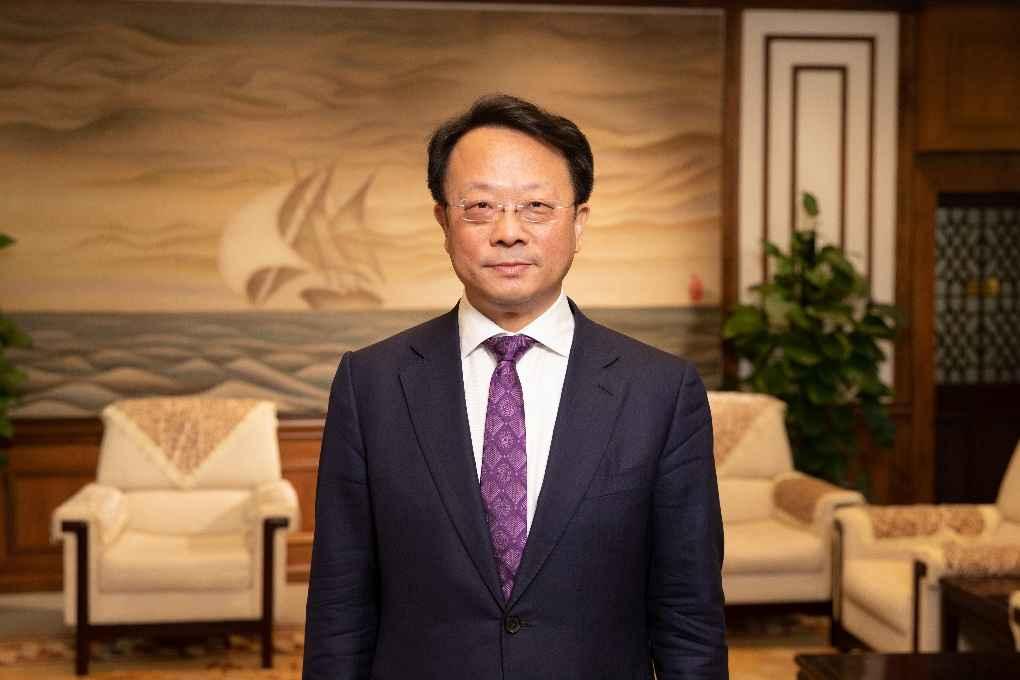
H.E. Luhut Binsar Pandjaitan, Coordinating Minister of Maritime Affairs and Investment of Indonesia, said that Tsinghua University has momentously chosen Bali as the location for its Southeast Asia center, while President Joko Widodo officially launched the “New Era Bali Kerthi Roadmap” at Kura Kura Bali, which signals symbolically a New Era Bali. He further emphasized that close cooperation between China and Indonesia will offer opportunity for both countries to promote new economic growth, deepen exchanges, and encourage the formation of quality investments in projects as well as talents for our happy and healthy common future.
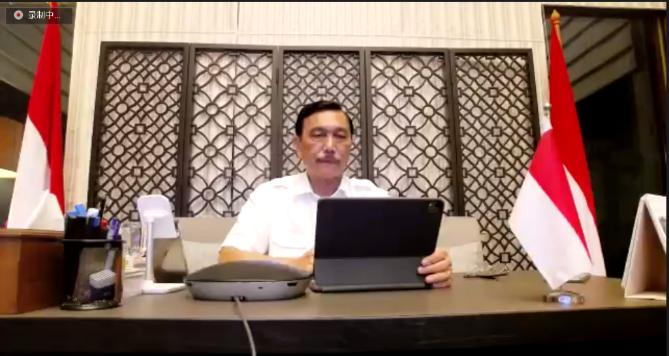
H.E. Budi Sadikin, Minister of Health of Indonesia, said that the Ministry of Health of Indonesia is committed to three priorities in strengthening global health architecture, including encouraging countries to build a global health system of resilience, harmonizing global health protocol standards, and expanding global manufacturing and research hubs for pandemic prevention, preparedness and response, in order to create a healthier and safer world.
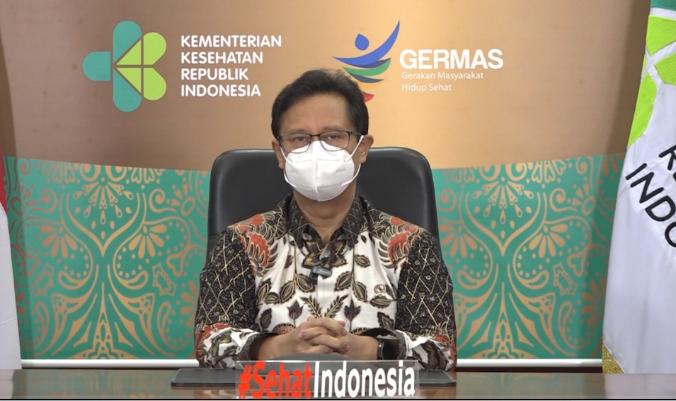
H.E. Ren Hongbin, Chairman of the China Council for the Promotion of International Trade (CCPIT) said that CCPIT will leverage its own advantages to serve as an important tie between the Chinese government and the industry. Taking this forum as an opportunity, it will further deepen cooperation with Indonesia, build more platforms for dialogues and exchanges, and provide better business and legal services, so as to help the enterprises of the two countries to explore cooperation in health care, digital economy, and investment, for win-win development, thus making a greater contribution to the building of a community of a shared future for China and Indonesia.
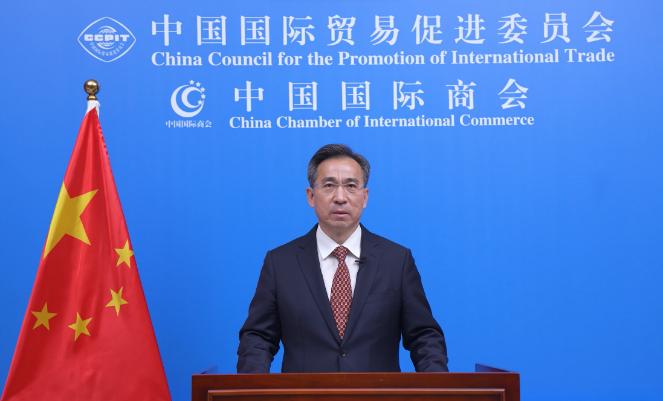
Dr. Margaret Chan, Founding Dean of the Tsinghua Vanke School of Public Health, and Emeritus Director General of World Health Organization, said that the current pandemic has exposed the weaknesses of the global health system, and the fragility of international cooperation. To build a healthier future, she suggested that the world must learn from the painful lessons and take actions together in solidarity, including establishing a new relationship between the countries of the world to tackle common health challenges, building a resilient public health system with better governance to improve population health, moving towards universal coverage based on primary health care to leave no one behind, and investing in systems beyond health to achieve sustainable development and harmony.
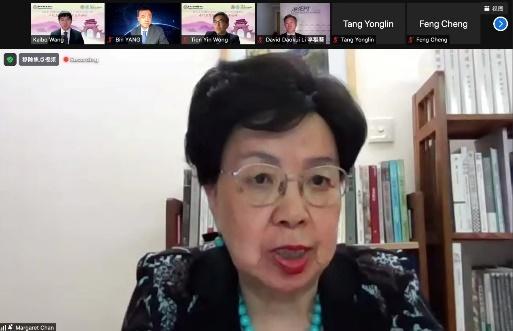
Mr. Tang Yonglin, Director of the Office of Big Data, Department of Planning and Information, National Health Commission of the People’s Republic of China, highlighted the important development opportunity for digital health as China sets “Healthy China” and “Digital China” as the national strategies in the 14th Five-year Plan period. He said that China would work together with Indonesia to grasp the new opportunity brought about by digital transformation, strengthen the digital health foundation, develop a digital health service, deepen digital health governance, secure digital health safety, and jointly promote the building of a global community of health for all.
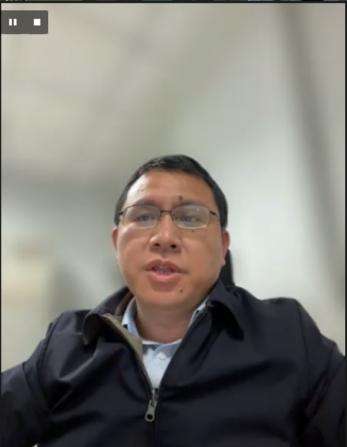 The opening ceremony was followed by two paralleled Deep Dive Discussions. Prof. Cheng Feng, Vice Dean of the Institute of Healthy China and Professor of the Vanke School of Public Health moderated the discussion entitled “The COVID-19 Pandemic: the Opportunity to Strengthen the Public Health System”. Prof. Liang Wannian, Executive Vice Dean of Vanke School of Public Health, delivered a keynote speech sharing his insights on how to strengthen the public health system.
The opening ceremony was followed by two paralleled Deep Dive Discussions. Prof. Cheng Feng, Vice Dean of the Institute of Healthy China and Professor of the Vanke School of Public Health moderated the discussion entitled “The COVID-19 Pandemic: the Opportunity to Strengthen the Public Health System”. Prof. Liang Wannian, Executive Vice Dean of Vanke School of Public Health, delivered a keynote speech sharing his insights on how to strengthen the public health system.
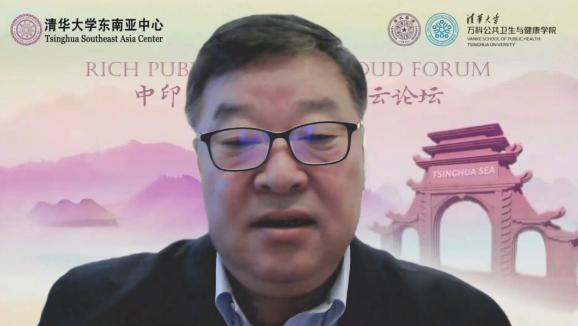
Prof. Mondastri Korib Sudaryo, Dean of the Faculty of Public Health of the University of Indonesia, Dr. Imran Agus Nurali, Director of Health Promotion of Ministry of Health of Indonesia, and Dr. Dong Xiaoping, Chief Expert of Virology of the China Center for Disease Control and Prevention, had profound discussions as panelists.
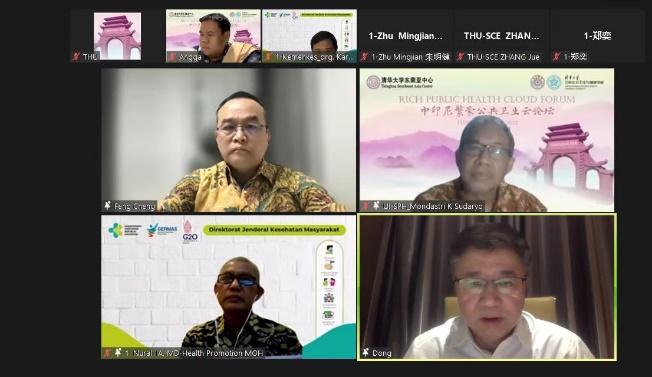
Sir Gordon Duff, President of the United in Diversity Foundation and Pro Vice Chancellor Oxford University Emeritus, and Prof. Wong Tien Yin, Founding Head of Tsinghua Medicine, co-moderated the discussion on “New Era Bali Kerthi Roadmap: Healthcare and Digital Investments”.
Prof. Li Daokui, Director of the Academic Center for Chinese Economic Practice and Thinking (ACCEPT) and Co-president of Society for the Analysis of Government and Economics (SAGE), Jona Widhagdo Putri, Special Assistant to the Coordinating Minister of Maritime Affairs and Investment of Indonesia, Dr. Wita Nursanti Nasution, Head of the Working Group of Health Service Partnership of Ministry of Health of Indonesia, and Li Ning, Vice President of BGI Group, shared their insightful views as panelists of this session.
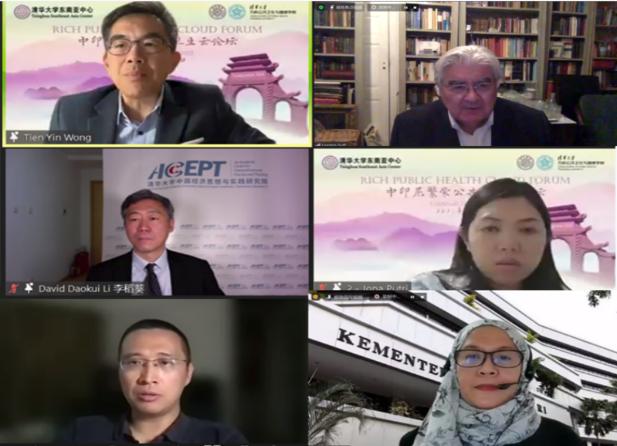
H.E. Luhut Binsar Pandjaitan and Prof. Yang Bin, Vice President and Provost of Tsinghua University, also attended this session and offered their reflections during the roundtable discussion.
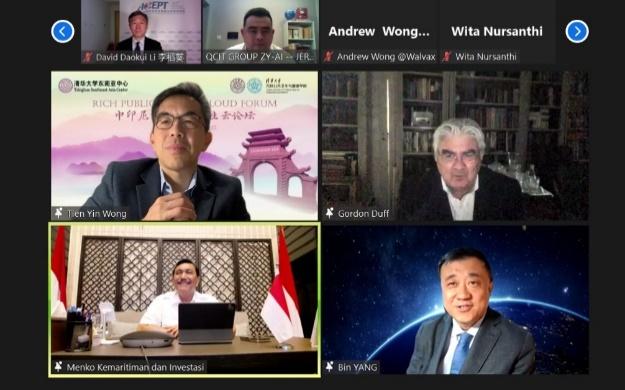
In his closing remarks, Yang Bin said that Tsinghua University has been dedicated to contributing to the UN SDGs through education and research, especially to the development of innovative solutions to pressing challenges like public health. The in-depth and fruitful discussion in the forum will be of great significance to the strengthening of the public health system and the promotion of financing and investment in the field of public health. Tsinghua Southeast Asia Center will have its official opening in Kura Kura Bali in November 2022 during the G20 Summit. He hoped that Tsinghua Southeast Asia Center, as a platform for innovation and cooperation between China and Southeast Asian countries and beyond, would make further contributions to the UN SDGs and to the common health of mankind.
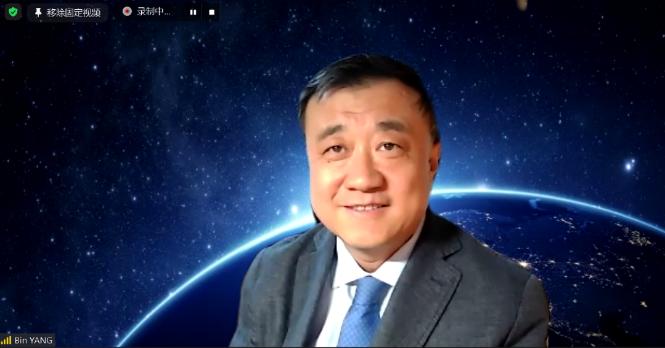
The forum was moderated by Professor Wang Kaibo, the Vice Dean of the Tsinghua Vanke School of Public Health. Around 200 people attended the forum online, including senior policy-makers, experts, and scholars in the field of public health, executives from financial institutions, pharmaceutical and biotech companies, leaders from the Tsinghua Southeast Asia Center, the Vanke School of Public Health, the School of Continuing Education, and similar bodies.
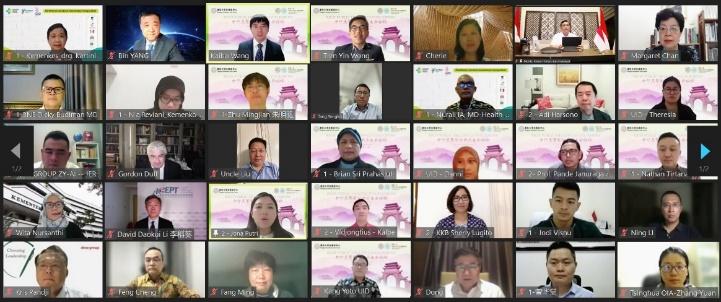
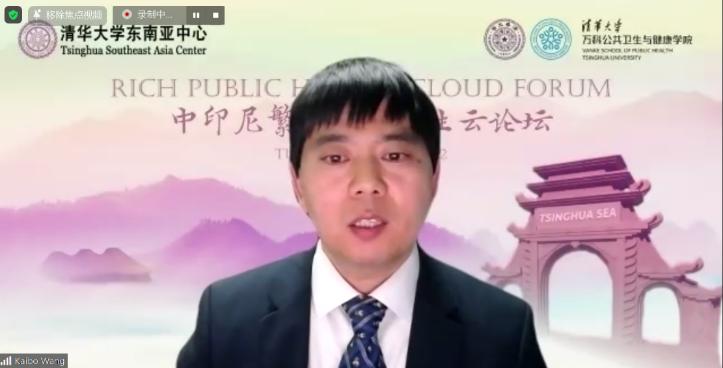
Editors: John Olbrich, Li Han

